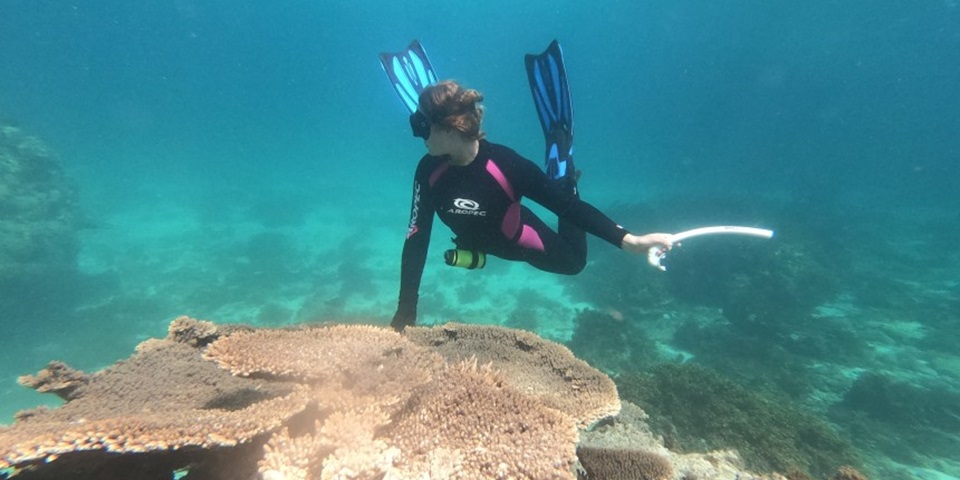News
What’s it like to study Conservation and Wildlife Biology

Thinking about studying a degree in Conservation and Wildlife Biology?
Murdoch student Ella Ruland tells us about her experiences studying the course, including how she became interested in environmental science, the amazing work experience opportunities she’s had, and her advice for future students.How I became interested in environmental science
I grew between Albany and the sleepy seaside town of Bremer Bay. I’ve always had an affinity for the sea, and aquatic mammals specifically. Growing up on the doorstep of a whale migratory path, every winter I’d watch the whales pass and return in spring with their babies in tow.I love the outdoorsy lifestyle
Since I started at fifteen, I can be found diving (scuba and freediving) any chance I get. When I’m not near the sea I can be found in the hills or the mountains or the bush - the more remote the more comfortable I am! I have a burning desire for knowledge, and an avid belief that there is too much to learn to ever be bored.Murdoch’s practical opportunities made the choice a no-brainer
The practical and fieldwork opportunities in my course were unparalleled by any other university, and a major attraction for me. Another major draw card for me was Murdoch’s wide selection of sister universities abroad and the brilliant international exchange programs available.Murdoch gives me a feeling of wellbeing, which I attribute to both the natural landscape of the campus and to the welcoming and inclusive qualities of the staff and students. Encouragement radiates from everyone I’ve interacted with at Murdoch, and the support network I have experienced is extremely strong.
What drew me to Conservation and Wildlife Biology
Growing up between the remote bushlands and the rugged coastlines of the South West, I always knew I wanted a career in environmental science.I love the possibilities studying Conservation and Wildlife Biology opens up for me and knowing I’m not studying for just one set job. I love the variability and vastness, the places I have been already and the places it has the potential to take me. I love that it can help me see more of the world.
I want to travel the world with my career
I would love to study the behavioural ecology of aquatic mammals. Their intelligence is beyond human comprehension, but I hope to study them long enough and intensively enough to deepen our understanding.I also want to journey to some of Earth’s most isolated regions, learning and working with Traditional Custodians. Living slowly aboard a zero-emissions research vessel, sailing through the Torres Straits and the Pacific Island nations, would be the ultimate combination of the two!
How I’ve gained hands-on experience
I was able to volunteer for Lek Chailert’s Elephant Nature Park in northern Thailand. where I spent time rehabilitating Asian elephants rescued predominantly from tourism related industries.Since the closure of the borders due to Covid-19, I directed my attention towards gaining practical experience closer to home. I’ve volunteered with the Flatback turtle population in Northern WA, worked aboard ecotourism vessels during the migratory whale season, interned for Naturaliste Charters Killer Whale Expeditions spending 2 weeks in the Southern Ocean, and spent my Summer weekends on Wadjemup as a volunteer diver monitoring the health of the seagrass environment.
My advice for future Murdoch students
Join clubs. Get your hands in the soil at the community garden. Volunteer. Reach out to PhD students with projects aligned with your studies and interests. Get your name out there and be active in the Murdoch community. Talk to your lecturers after they present. Use the library. Not only for assignments, but also for yourself.Question everything, and then, don’t be afraid to voice your questions. Explore the university website. Particularly the scholarship section. I am constantly blown away by the generosity of donors and the funds that exist out there with the sole purpose of supporting you.
Think a career in environmental science is for you? Check out our degree in conservation and wildlife biology.